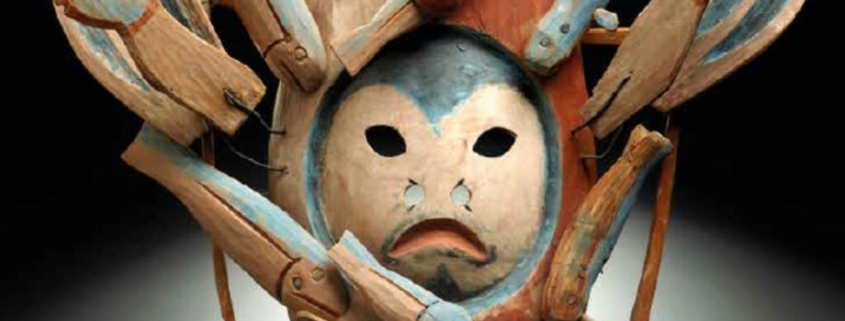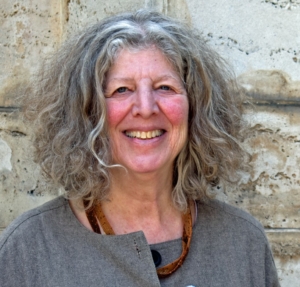
Yup’ik masks at the Vatican; Indigenous American Heritage in European Museums
Chuna McIntyre and Ellen Pearlstein
Collaborative practices that are increasingly expanding in the U.S., Canada, Australia and New Zealand are important to extend toEuropean museums holding these collections, i e., to create more global paradigms for collaborative conservation practice. As a direct outcome of Ellen Pearlstein’sRome Prize Fellowship at the American Academy in Rome for six months in 2022, shewas ableto work with two museums in Rome with major American Indigenous holdings, and with significant investments in redefining colonial museum practices. These are the Anima Mundi, the renamed ethnological museum of the Vatican Museums in Vatican City, and the “Luigi Pigorini” National Prehistoric Ethnographic Museum, now part of the Museo delle Civiltá in Rome. The opportunity to facilitate a meeting and reconnectYup’ik elder Chuna McIntyreto masterful Yup’ikmasks collected in 1924 for the Vatican Missionary Exposition in 1925led to profound linguistic, spiritual, and technical lessons, permitting the museum to revise their understanding and their exhibition label. Chuna will further share about the Yup’ik worldview for his heritage.
Biography
 Ellen Pearlstein was the Senior Objects Conservator at the Brooklyn Museum in NewYork, where she also served as an advisor on Native American Graves Protection and Repatriation Act. In 2005, Ellen assumed a faculty position in the UCLA/Getty Program in the Conservation of Cultural Heritage and in 2008 Ellen joined UCLA’s Department of Information Studies, and invited students interested in library and archive materials into her preservation and management classes. Her research engages with how technology and care of Indigenous materials are strengthened through working with source communities, which she has recently extended to Europe. Her upcoming book in the Getty Readings in Conservation series, “Conservation and Stewardship of Indigenous Collections: Changes and Transformations” is in production. Ellen’s technical research includes conservation of featherwork and basketry, effects of environmental agents; pre-and post-Hispanic qeros from the Andes; and curriculum development within conservation education.She directs the Mellon Opportunity for Diversity in Conservation, part of her career-long work on increasing underrepresented engagement with the field. Ellen is a Fellow in the American Institute for Conservation and the International Institute for Conservation, winner of the Keck award, and President of the Association of North American Gradate Programs in Conservation.Her presentation reflects work conducted as a 2021 Rome Prize Fellow at the American Academy in Rome. epearl@ucla.edu
Ellen Pearlstein was the Senior Objects Conservator at the Brooklyn Museum in NewYork, where she also served as an advisor on Native American Graves Protection and Repatriation Act. In 2005, Ellen assumed a faculty position in the UCLA/Getty Program in the Conservation of Cultural Heritage and in 2008 Ellen joined UCLA’s Department of Information Studies, and invited students interested in library and archive materials into her preservation and management classes. Her research engages with how technology and care of Indigenous materials are strengthened through working with source communities, which she has recently extended to Europe. Her upcoming book in the Getty Readings in Conservation series, “Conservation and Stewardship of Indigenous Collections: Changes and Transformations” is in production. Ellen’s technical research includes conservation of featherwork and basketry, effects of environmental agents; pre-and post-Hispanic qeros from the Andes; and curriculum development within conservation education.She directs the Mellon Opportunity for Diversity in Conservation, part of her career-long work on increasing underrepresented engagement with the field. Ellen is a Fellow in the American Institute for Conservation and the International Institute for Conservation, winner of the Keck award, and President of the Association of North American Gradate Programs in Conservation.Her presentation reflects work conducted as a 2021 Rome Prize Fellow at the American Academy in Rome. epearl@ucla.edu

